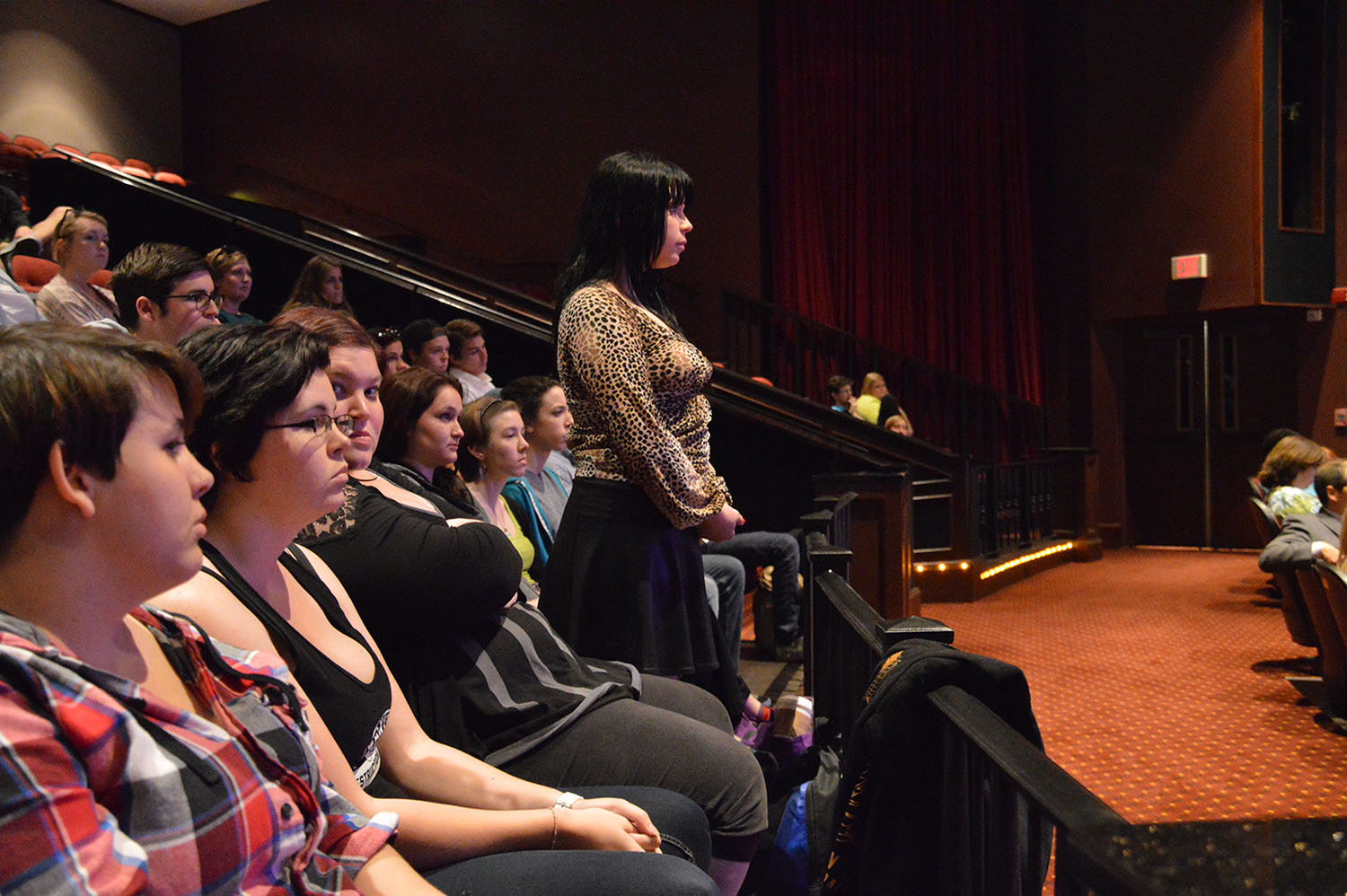
By Alexa Epitropoulos | gargoyle@flagler.edu
Photos by Chase Wilson
Though students piled into Lewis Auditorium for President William Abare Jr.’s speech, many were left with questions and few definitive answers.
The speech, which covered the basics of the altering of freshman students’ GPAs, SAT scores and class rankings in Flagler College’s computer databases to improve rankings, honed in on the reputation of the college rather than the repercussions students could face and what changes the administration plans to make to prevent similar instances.
“It does not, in any way, blemish our institution,” Abare said.
Denying that students would face repercussions due to the college’s actions, Abare said that graduating students should not worry about the college’s accreditation or reputation.
“Your degree will not be devalued,” Abare said.
Abare ceded many questions to the developing investigation that officially began on Feb. 18, especially when fielding questions from the nearly 500 students that gathered to hear his prepared statements. Abare claimed that Flagler will be transparent about the results of the investigation, which will be conducted by Jacksonville law firm McGuireWoods.
Abare also denied that any financial incentives were given to Marc Williar, vice president of enrollment, stating that Williar acted alone, on personal and professional pride.
“He regretted it. He did not intend on anything happening to the college,” Abare said.
Williar, a graduate of Flagler College who worked in admissions since 1988 and was promoted to vice president of enrollment in 2009, was not always held in low esteem. Williar received the Pride of Flagler, described as Flagler’s highest honor, in 2012 for increasing admissions 100 percent during his time as vice president, from 1300 to 2500, mostly by recruiting out-of-state students.
Williar’s recruitment of new students came

President Abare addresses student questions
at a price. Williar claims that the incoming class of 2010 had a diminished academic profile and that he changed the numbers to better fit with the previous incoming class.
“I made a serious misadjustment and inflated the profile and said that it was something it wasn’t,” Williar said in an interview with the St. Augustine Record
Williar did not respond to the Gargoyle’s request for a comment.
Many Flagler College faculty members and professors, meanwhile, feel misled by the false numbers and even by the administration, who encouraged them to increase students’ performances based on false statistics.
Professors like faculty senate chairwoman Rachel Cremona, associate professor of political science, Ph.D., were surprised by Abare’s announcement.
“We feel like our students have been misrepresented to us,” Cremona said.
Though Cremona said that she was pleased by the information Abare provided faculty with during the special meetings on Feb. 17, she, as part of the faculty senate, feels the administration must be more transparent, especially when it comes to student admissions. Professors currently have no role in deciding which students are admitted to the college, making admissions a private, insulated affair.
“I think there was not sufficient oversight. One person controlled so much data for this long and it took this long to discover it,” Cremona said. “I think that there needs to be better mechanisms for accountability.”
David Arreola, the president of Flagler’s student government association, said he was satisfied with Abare’s address as a whole. Arreola will meet with Abare individually on Feb. 24 to address concerns students have brought forward.
“I felt that his statements were very corroborative with other information we’ve received,” Arreola said. “I was generally satisfied with how students treated the meeting.”
The college’s data discrepancies, officially brought forward on Feb. 10, were revealed accidentally. An unnamed Flagler College professor noticed that SAT scores for students placed in ENG 142, a remedial English class, were higher than the placement standards. When the scores reported were compared to a database of student scores when they were accepted into Flagler, it became clear that student scores had been replaced by not just a few points, but by hundreds. The improved, inaccurate data was sent to U.S. News and World Report and used to establish college rankings.
Flagler, though not nationally ranked, was listed as eighth in the southern region by the U.S. News and World Report prior to the data being rescinded.
Misreporting and inflating data has become more common, especially as it has become more difficult to attract high-quality students. Similar scandals have unfolded at larger colleges and universities, including George Washington University, where, in 2012, it was revealed that the school incorrectly reported that 78 percent of the incoming freshman class graduated in the top 10 percent of their class.
The extent of the misreported data will be revealed in further detail when the independent investigation is completed.
Justin Katz contributed to this report




Be the first to comment on "Students voice concerns, questions at president’s address"